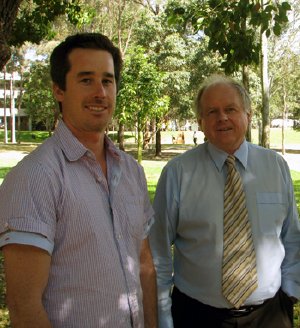Dec 7 2009
New nano-technology being developed by physicists at Macquarie University could help medical professionals better understand and more effectively treat cancer and other diseases.

Senior Lecturer at Macquarie University, Associate Professor James Rabeau, is using nano-diamonds to develop a new imaging technique that may allow scientists to image the finest details of a single cell, including those infected with cancer or other life threatening diseases.
Rabeau said his work could aid in the development of drugs to fight illness while, at the same time, help researchers better understand complex diseases.
"There's so much information in single molecules and proteins and they are so important to the many functions of life. The point of my project is to use nano-diamonds which are sensitive to magnetic fields placed on probe tips as an imaging device," he said.
"If we can actually zoom in even further than the current limits of microscopy and actually look at small components and even beyond that, that's rich ground for new discoveries.
"It could potentially help scientists look at cancer cells in the level of detail that would allow them to understand how disease spreads and what gives rise to it."
Nano-diamonds are made up of tiny particles of carbon, but some have impurities present such as nitrogen atoms which make them susceptible to magnetic fields. Rabeau is exploiting these impurities in the hopes of creating ‘super microscopes'.
"That is the big dream - to build a nano-diamond probe that biologists can use to take a picture of a single molecule. From that you would look at engineering it into a real and practical device and eventually benefit people in the medical field or in drug therapy," he said.
Rabeau said it's likely to take a long time to reach his goal, which involves relying on many local and international collaborations.
"I guess the key for me is to try to find a stream that is unique. The progress we've made over time is phenomenal but there's even further to go."
Rabeau was recently named a Future Fellow by the Australian Research Council for his proposal: Room temperature quantum microscopy for advanced nanoscale imaging. The prestigious scheme recognises talented mid-career researchers.